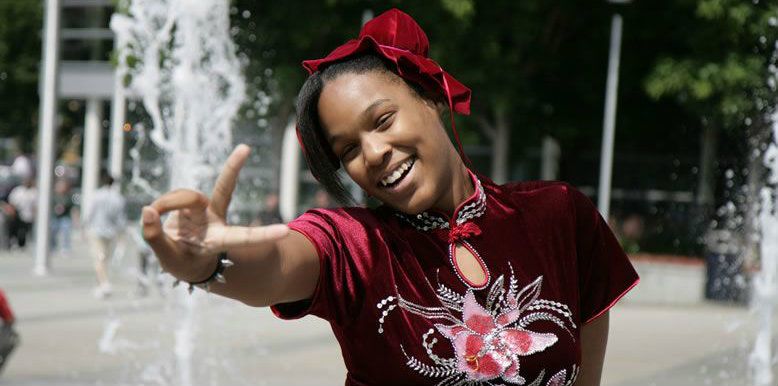Blacks in Geek Culture: The Final Frontier?

It’s Black History Month and a great time for The Internets to remember that black people exist, and apparently, it sucks to be us.
First I read a piece in xojane about the racism hurled toward black cosplayer Chaka Cumberbatch. Then Comic Alliance published a piece on the dearth of black writers in the comic book industry. I’m sure there will be more articles just like this in the next 22 days.
It’s not like any of the above is surprising news, just that this is the one time of year where anyone outside of “black media” publishes anything about it. *sigh* Race, the final frontier.
We’ve talked on TLF about gender and fandom, particularly misogyny in online fandom. But race and fandom doesn’t get talked about as much, especially black people in the geek world. Except for now, because it’s February. But any other time it’s complicated. Writing about racial identity tends to open up a big can of worms as a black person; as soon as you do, you run the risk of being pegged as a whiner, or being angry or complicating issues with your “biased, emotion-driven” perspective, or being overly negative, or not fully appreciating the wonderful post-racial society we live in.
I’m a second generation Trek fan, a life long Star Wars fan and sporadic Marvel fangirl. I know the Fellowship of the Ring by heart. I self-identified as a geek long before I self-identified as a metalhead – but I honestly never really thought I was much of an anomaly until going to a mostly white college. You see, many of the kids I hung out with in my middle-class, black neighborhood in Chicago were (and are) geeks, obsessing over Star Wars lore, reading Spiderman and X-Men comics, trading Transformers, watching Aliens on HBO.
There are tons of us: black, geek, proud – and generally invisible in portrayals of mainstream geek culture. And let’s face it, geek culture is mainstream.
Geek culture is quite profitable these days, too – which is why I chalk up much (not all) of the whitewashing of geek fan culture to a marketing environment that persists in siloing pop culture consumer demographics: “Geek” culture = white. (See the Portlandia skit below.) “Urban” culture = black, and there’s no intersection between the two. All of it is male, unless you’re a “mom” and then you have a culture of your own.
Of course, the bigger issue is the marginalization of black American culture in general. The so-called black experience is defined through a narrow, singular lens (Slavery! Civil Rights Movement! Hip Hop! Aaaaaand Hip Hop!) and leaves room in pop culture for only one black archetype at a time. There can be only one, like Highlander. For black geeks, it used to be Steve Urkel, now it’s Donald Glover.
But black geeks continue to hide in plain sight in mass media, coming out at seemingly unexpected moments, such as astronaut Mae Jemison extolling her love of Star Trek on a recent episode NPR’s Wait, Wait Don’t Tell Me, or Aisha Tyler revealing her cred as a hardcore gamer. And black geeks flourish online with YouTube personalities like Black Nerd Comedy and Otaku Assemble. So the next giant leap for black geek-kind, I suppose, is to not be portrayed as the exception to the “white and nerdy” archetype within mass media (Love you, “Weird Al”), but a part of a community that’s been there all along.
Related:
Where Are the Black Women in Tech?I Don't Listen to Current Hip Hop...Why Are You So Shocked?
Keidra Chaney is a writer and digital strategist in Chicago. She is the editor and co-founder of thelearnedfangirl.com

No comments: